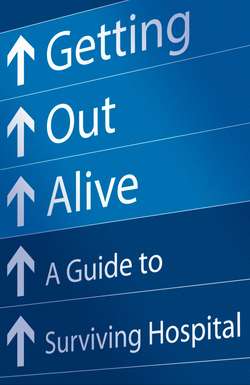Читать книгу Getting Out Alive: A Guide to Surviving Hospital - Michael Alexander - Страница 6
Before You Go To Hospital Expectations
ОглавлениеYou are in need of medical assistance. Maybe you’ve never needed help yourself before. What are your expectations? The chances are, you expect to enter medical care and be cured.
It may seem strange, but in reality not a lot of curing goes on in hospital. Indeed, trainee nurses and doctors are often told not to expect to do much curing … I’m afraid, yes, you did read that right.
For all our incredible medical advances, much of our treatment involves treating the symptoms when they flare up, then helping to reduce the chance of them happening again.
For an example, let’s look at a common problem like asthma. The medicine for asthma – such as inhalers and steroids – is used to treat the symptoms. When the symptoms no longer cause distress, patients are given medicine to hopefully help prevent another flare-up of their condition. But they cannot be cured.
Even medical equipment, from intravenous drips to urinary catheters, is used to help the body assist itself in getting better. Take Bob. Bob was a fit forty-year-old man who unexpectedly developed a nasty bout of diarrhoea and vomiting. Normally these afflictions would last between 24 and 48 hours, and resolve on their own. However, in Bob’s case, on day three he still was unable to hold down anything solid, and was even struggling to drink water. Bob was admitted to hospital. He was put on a drip, and while he was being rehydrated his blood was tested to rule out bacterial or parasitic causes for his infection. As is often the case, his illness was caused by a virus, but after 24 hours of intravenous fluids he felt much better and was discharged home, without antibiotics. The key thing here is recognising that the drip didn’t fix Bob’s problem; rehydration didn’t cure the virus, all it did was help maintain water levels adequately whilst his body fought off the illness.
Another prime example is Max. Max is recovering after a ‘heart attack’. The heart attack caused a part of his heart muscle to have a shortage of blood, and by consequence a shortage of oxygen, for long enough that a portion of the muscle has been damaged, or more accurately, some of the muscle has died. Once a heart attack has occurred, the damage is done; all our medication can do is help prevent another heart attack occurring and help the weakened heart to pump effectively.
But, as I said, there is hope. New treatments are being discovered all the time. In Max’s case, there are now alternatives. Where the problem lies in circulation in the vessels supplying the heart with blood, then there’s always open-heart surgery to replace the vessels. I guess that’s a cure. It repairs the blockage, but even then it doesn’t repair the dead tissue. If you really want a cure for your weakened heart, there’s always a heart transplant. Of course, these are pretty drastic cures with their own inherent risks.
I don’t want to scare you and I don’t want you to begin thinking there’s no point going to hospital, as we can still do many wondrous things. The vital point I’m trying to make is that you can’t always expect medicine to cure your problem, but you can expect it to help you live with your problem. It’s your body that does most of the healing. No drug or treatment is as effective as your body when it gets a fair chance at healing itself.
If you think this is an obvious point that I didn’t need to make, all I can say is that in all my years of nursing, this is one of the most common misconceptions.
